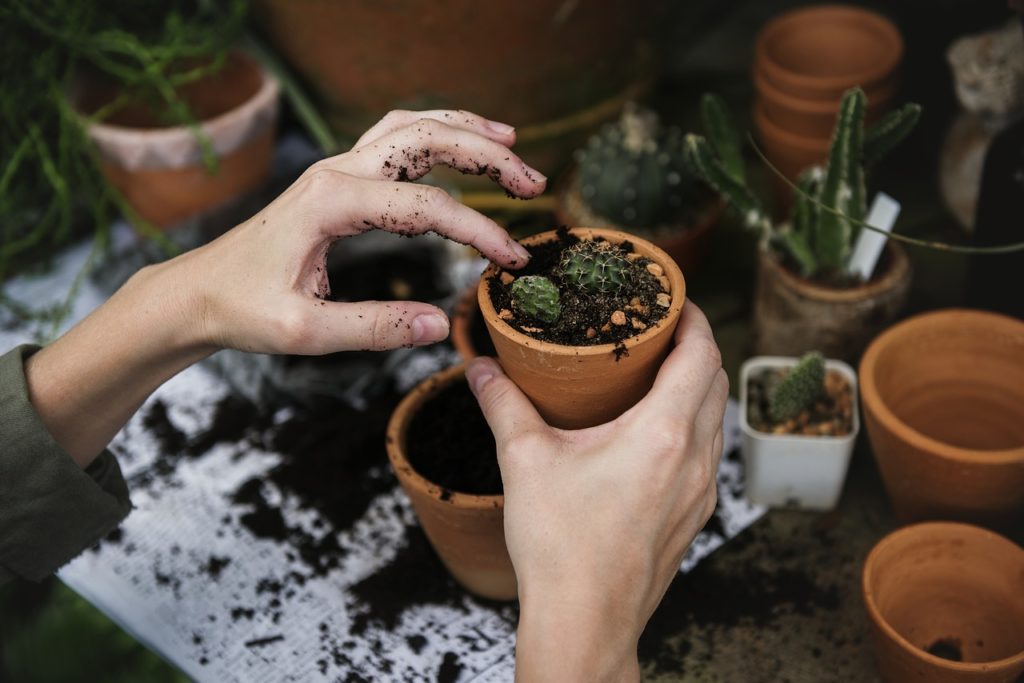Depression is one of the most common mental illnesses in the US. It’s estimated that 16.2 million Americans suffer from major depressive episodes lasting more than two weeks each year.[note]https://www.nimh.nih.gov/health/statistics/major-depression.shtml[/note] Pharmaceutical antidepressant use is increasing. Almost 13% of the population above the age of 12 reported taking antidepressants in the past month when surveyed. [note]https://www.cdc.gov/nchs/products/databriefs/db283.htm[/note] CBS News reported antidepressant use skyrocketed 65% in just 15 years![note]https://www.cbsnews.com/news/antidepressant-use-soars-65-percent-in-15-years/[/note] Use of pharmaceutical drugs to treat depression comes with a whole host of side effects. [note]https://www.webmd.com/depression/features/coping-with-side-effects-of-depression-treatment#1[/note] What if a simple treatment existed in nature?
Horticultural therapy is gaining popularity to treat depression. Anecdotal experience and research studies support its effectiveness.
Published in the Journal of Advanced Nursing, “Therapeutic horticulture in clinical depression: a prospective study of active components” found gardening therapy to be effective in reducing the symptoms of depression. Individuals participated in a 12-week “therapeutic horticulture programme” at four farms near Oslo, Norway. Twice a week participants spent three hours on the farms doing the following activities:
The active parts of the programme included sowing, germinating, potting, planting and cultivating vegetables, flowers and herbs. The passive parts included sitting on benches, and watching and listening to birds, the weather, and the landscape.
A three-month follow-up occurred. Particularly, researchers were looking for changes in:
- depression severity
- perceived attentional capacity
- rumination (brooding)
Half of the participants Beck Depression Inventory scores dropped by 4 to 5 points. Likewise, attention function increased and brooding was reduced. These improvements were maintained at the three-month follow-up. Researchers found:
Psychological distance from everyday demands, together with positive distraction and engagement of effortless attention, appear to mediate decline in depression severity and increase in perceived attentional capacity when using therapeutic horticulture.[note]https://www.researchgate.net/profile/Marianne_Gonzalez/publication/45183714_Therapeutic_horticulture_in_clinical_depression_A_prospective_study_of_active_components/links/569fad1508ae2c638eb7bb07/Therapeutic-horticulture-in-clinical-depression-A-prospective-study-of-active-components.pdf[/note]
Although the above study postulates that “being away” and “fascination” are the reasons why gardening therapy is effective at treating depression, other therapists suppose interacting with nature itself may be the cause.
Horticultural therapists are trained to help patients experience the greatest benefits from gardening. They teach them to learn and observe what plants can teach us. CNN reports:
“Seeds have these cool internal clocks that tell them when they can bust open and form roots!
“What do you need to grow? Sun, water, confidence, courage!”
A participant added, “patience!!”
Shortridge echoed, “Patience! I love it!”
The group then took seeds into their hands and planted them in one of Skyland’s many gardens. Birds chirped overhead, and a cool breeze blew through.
Shortridge pointed out how the sun filtered through the leaves like a projector, creating designs on the grass. “Do y’all notice the pattern?”
Observing is a big part of the therapy.[note]https://www.cnn.com/2018/08/03/health/sw-horticultural-therapy/index.html[/note]
Horticultural therapy is a viable option to reduce the need for pharmaceutical drugs in treating depression. Any gardener can attest to how it feels to tend to plants, dig your hand in the soil, and observe the growing process. We can often turn to nature to help alleviate the mental illnesses of modern life.
Image: rawpixel / Pixabay

Great content you got here. You’re so right. Horticultural therapy is not just mere gardening wherein you grow plants. It is actually a customized and structured programs and activities that consist of treatment goals and objectives which are supervised by a highly trained horticultural therapist.